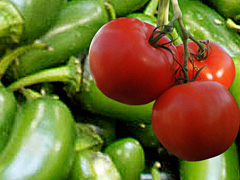
|  |  |  Health & Beauty | August 2008 Health & Beauty | August 2008  
U.S. Officials Report End to Salmonella Outbreak
 David Mitchell - The Packer David Mitchell - The Packer
go to original


| | The FDA will continue to sample Mexican imports at an increased rate, and CDC and state health officials will continue surveillance for reported Salmonella Saintpaul cases. | | |
The Salmonella Saintpaul outbreak that affected more than 1,400 Americans and cost the produce industry millions of dollars is over.

Finally.

Robert Tauxe, deputy director of the Division of Foodborne, Bacterial and Mycotic Diseases at the Centers for Disease Control and Prevention, said Aug. 28 that the number of illnesses being reported has dropped to a level that public health officials would expect to see in the absence of an outbreak.

Tauxe said that clusters of illnesses, created when multiple people fell ill after eating at the same restaurants, have not occurred since early July.

“That’s another important indicator that the outbreak appears to be over,” he said.

David Acheson, the Food and Drug Administration’s associate commissioner for foods, said the agency was lifting its consumer advisory against Mexican jalapeño peppers and serrano peppers.

“PMA is very pleased to see FDA lift the consumer advisory on jalapeño and serrano peppers from Mexico,” said Kathy Means, vice president of government relations and public relations for the Newark, Del.-based Produce Marketing Association. “PMA looks forward to working with the agency on its produce safety initiatives in the future.”

Acheson said FDA made the decision because the CDC had declared the outbreak over and the fact that contaminated peppers likely are no longer in the supply chain. FDA, he said, placed 17 Mexican companies on import alert following positive salmonella tests — for a variety of strains, including Salmonella Saintpaul — in July and early August.

“Clearly, none of us can provide a cast-iron guarantee that Salmonella Saintpaul won’t reoccur,” Acheson said.

He said FDA will continue to sample Mexican imports at an increased rate, and Tauxe said CDC and state health officials will continue surveillance for reported Salmonella Saintpaul cases.

Public health officials initially linked the outbreak to tomatoes in late May before turning their focus to other ingredients found in fresh salsa in early July.

Tauxe said jalapeños were a “major vehicle by which the pathogen was transmitted, and serrano peppers also were a vehicle.” Samples of both commodities have tested positive for Salmonella Saintpaul, but the case against tomatoes remains limited to epidemiological evidence. Nevertheless, Tauxe maintained that it still is possible that tomatoes might have played a role early in the outbreak.

In late July FDA found Salmonella Saintpaul on peppers and in water on a Mexican farm. However, Acheson said the agency was not prepared to say that unnamed grower was solely responsible for the outbreak.

He also said there was cattle in close proximity to that farm, but it has not been determined if the animals were a source of contamination.

The outbreak, which began in April, has resulted in 1,442 reported illnesses in 43 states, Washington, D.C., and Canada. There have been at least 286 hospitalizations, Tauxe said.

No deaths have been directly linked to the outbreak.

In addition to the 17 Mexican companies on import alert, products from eight domestic companies tested positive for salmonella during July and August sampling of basil, cilantro and hot peppers. None, however, tested positive for Salmonella Saintpaul.

The owner of one of those companies, Ralph Villano of Fort Lupton, Colo.-based grower-shipper Villano Bros. Farm, said after the FDA reported a positive salmonella test on a sample of his company’s cilantro taken at another point in the supply chain, U.S. Department of Agriculture inspectors took more than a dozen samples at Villano’s farm. All came back negative, he said.

“We don’t have salmonella,” he said Aug. 25. “If the product was contaminated, it happened somewhere else.” |

 |
|  |



